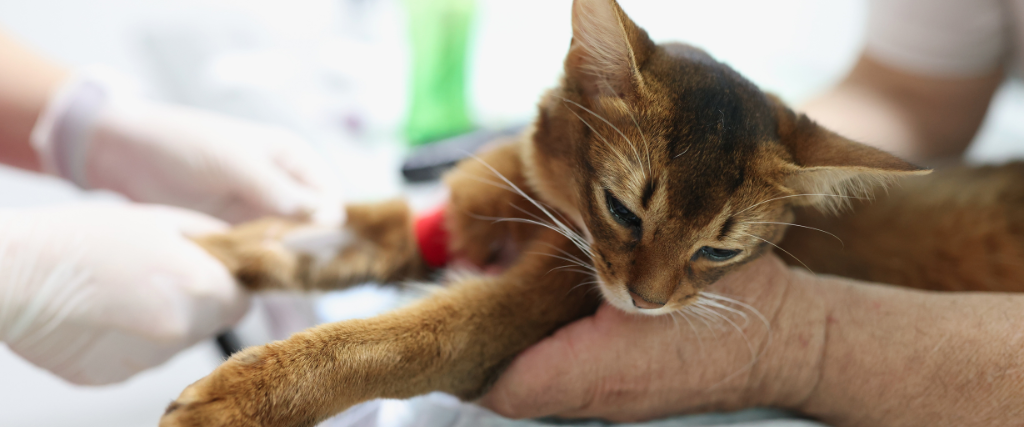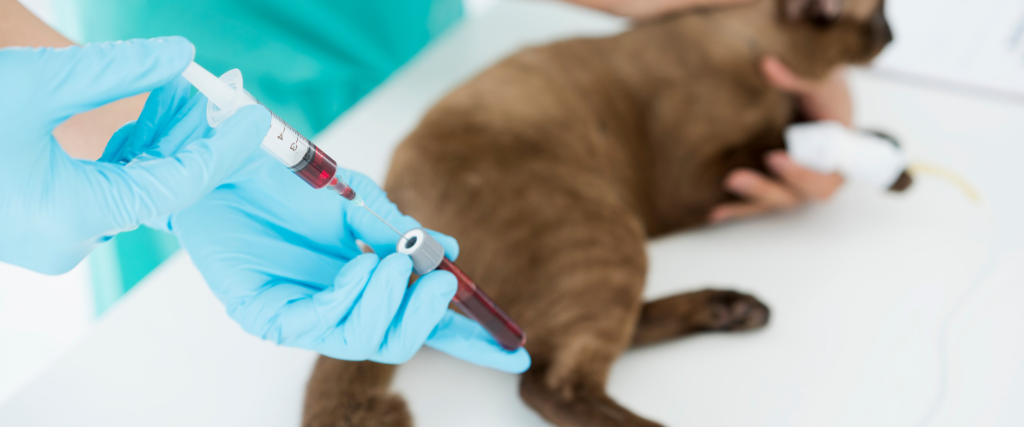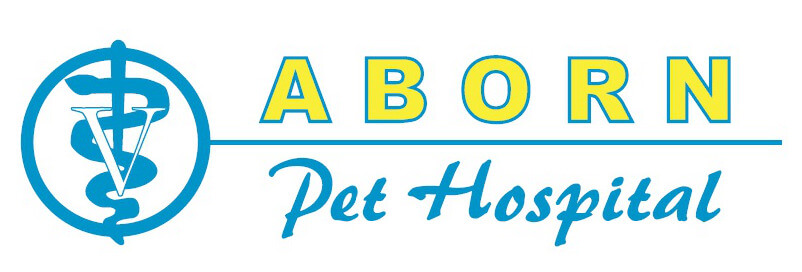Cats may have a mysterious way of hiding their health issues, making it challenging for us to notice when something is amiss. Cats often don’t show symptoms until they’re already extremely unwell, and that’s a major problem.
Once an illness progresses to a certain point, it’s sometimes too late to help.
This is where routine blood work becomes a valuable ally in ensuring the well-being of your beloved furry friend. As veterinarians, we’ve seen the benefits of routine blood work for cats firsthand and are here to help you do what’s best for your pet. Let’s explore the importance of routine blood tests for cats, the common tests involved, and how they can help us catch potential health problems before they become severe or untreatable.
What Is Routine Blood Work?
Routine blood work is a diagnostic procedure involving drawing a small blood sample from your cat. We then analyze the sample to measure the various components in their blood. This gives us valuable insights into their overall health and can lead to timely interventions and better outcomes for your feline companion.
We understand some pet owners might feel apprehensive about having their cats’ blood drawn. Rest assured that we prioritize every patient’s comfort and safety during the process. We take every measure to create a fear-free environment, using calming techniques and gentle handling to make the experience as stress-free as possible.

Common Routine Blood Tests for Cats
We rely on several routine blood tests to detect potential health issues in cats. These include:
- Complete Blood Count (CBC): A CBC evaluates the different types and levels of blood cells, which helps us identify possible infections or anemia. We can gain valuable insights into your cat’s immune system and overall health by assessing the red and white blood cells, platelets, and other components.
- Blood Chemistry Profile: This test assesses organ function, electrolyte balance, and blood sugar levels, providing clues about the health of your cat’s liver, kidneys, and thyroid gland. By monitoring specific markers in the blood, we can detect any abnormalities that may indicate underlying health conditions.
- Feline Leukemia Virus (FeLV) and Feline Immunodeficiency Virus (FIV) Testing: These tests are crucial in detecting viral infections that can severely impact your cat’s immune system. Early detection of FeLV and FIV is essential for providing the appropriate care and support needed to manage these conditions.
The Benefits of Early Detection
Early detection through routine blood work offers several significant benefits for our feline companions:
1. Detecting Health Issues Before Symptoms Manifest
Cats are masters at hiding discomfort, and symptoms of illness may not become apparent until a problem has progressed significantly. Routine blood work can help us catch underlying health issues before your cat shows any signs of being unwell. By identifying potential problems early on, we can begin appropriate treatments and interventions, significantly improving the chances of a positive outcome.
2. Managing Chronic Conditions
For cats with chronic conditions like kidney disease or diabetes, routine blood work allows us to monitor their condition closely. Timely adjustments to treatment plans can significantly improve their quality of life and longevity. By proactively managing these conditions, we can minimize their impact on your cat’s well-being.
3. Supporting Senior Cats
As your feline friend ages, they become more susceptible to various health concerns. Regular blood work is essential for senior cats to detect age-related issues and address them immediately. We can help senior cats age gracefully and comfortably with age-appropriate care and early intervention.

Taking Charge of Your Cat’s Health
As a loving pet parent, you play a crucial role in your cat’s healthcare journey. Here are some steps you can take to take charge of your feline friend’s health:
- Schedule Regular Vet Visits: Schedule routine checkups with your veterinarian to stay ahead of any potential health issues. Regular blood work should be part of these visits, especially for senior cats and those with known health conditions. Your veterinarian will guide you on the appropriate frequency of blood work based on your cat’s age and health status.
- Watch for Changes in Behavior: Pay attention to any changes in your cat's behavior, appetite, or litter box habits. These subtle signs may be early indicators of health problems that require veterinary attention. Something as simple as urinating outside the litter box could be a sign of a urinary tract infection. And changes in gait may indicate arthritis. Share any unusual observations with your veterinarian during check-ups just in case they point to a serious underlying health problem.
- Ask Questions: Ask your veterinarian to explain blood work and other test results to you in a clear and understandable manner. If you need clarification, don’t hesitate to speak up. Understanding the findings will help you actively participate in your cat’s care plan. Your veterinarian will work with you to create a customized care plan that addresses your cat’s specific needs and health goals.
Closing Thoughts
One of the main benefits of routine blood work is that it allows us to monitor cats’ health and identify health problems before they become severe. With early detection, we can begin treatment right away, often before symptoms present. And in addition to increasing the chances of a positive outcome, treating illnesses early is usually much more affordable than trying to manage severe health problems later.
Investing in routine blood work and regular veterinary check-ups provides your cat with proactive healthcare, which is a precious gift. Together, we can ensure that your beloved cat continues bringing joy and love into your life for years.

